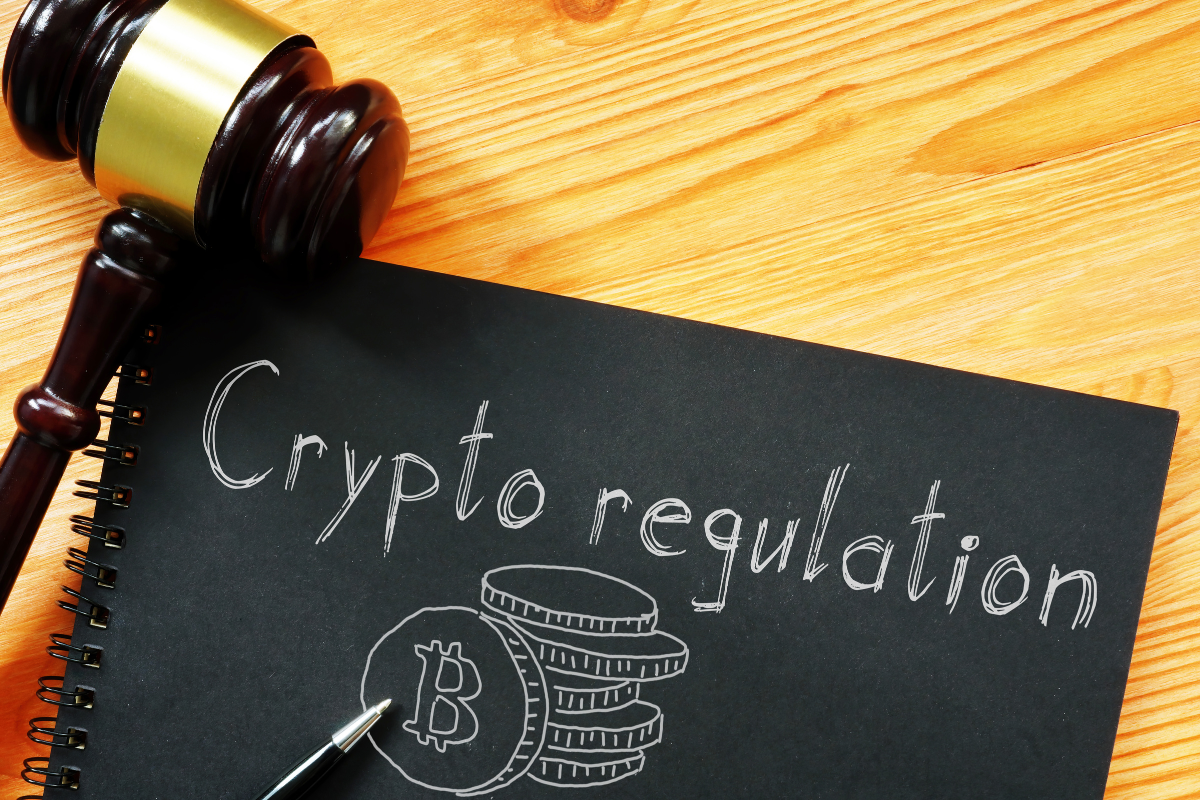Regulations of cryptocurrency vary depending on the country and region. In the United States, cryptocurrencies are generally regulated by the Securities and Exchange Commission (SEC) and Commodity Futures Trading Commission (CFTC).
It is important to keep up-to-date with regulatory changes, as non-compliance can result in fines, legal battles, and reputational harm.
It is recommended that individuals and businesses consult with professional legal advice to ensure compliance with existing regulations.
Post Contents
Understanding Crypto Regulations
Cryptocurrency regulations, like any other form of regulation, are intended to protect investors and reduce the risk of illicit activities.
However, what makes crypto regulations different from other financial regulations is the decentralised and global nature of cryptocurrency.
Many countries are still trying to figure out how to best regulate this new asset class. Therefore, it is essential for crypto users to have a clear understanding of these regulations.
Crypto regulations are not only about compliance with local laws but also with international standards.
A user trading in one country may be subject to legal action outside that country if they do not comply with regulations elsewhere. This is why staying up-to-date on global regulatory developments is essential.
An illustration of this issue is seen in the US Ripple lawsuit. The SEC has accused Ripple Labs of selling unregistered securities worth $1.3 billion USD over several years from the sales of its digital asset XRP.
This lawsuit has had global implications as it calls into question how other countries will regulate cryptocurrencies if the US SEC concludes that XRP should be classified as securities.
Another thing to consider when it comes to crypto regulation is that changes in legislation can occur quickly and without warning.
It’s crucial to stay informed about these changes by reading industry publications or following legal firms specializing in crypto law.
Now that we have a better understanding of why crypto regulations are important let’s take a closer look at the different types of regulations.
- It is important for crypto users to understand cryptocurrency regulations, which are designed to protect investors and prevent illicit activities.
Unlike other financial regulations, crypto regulations are decentralised and global, making it important for users to stay up-to-date on both local and international standards.
The US Ripple lawsuit highlights the potential global impact of US regulatory decisions on cryptocurrencies.
As changes in legislation can occur suddenly and without warning, it is crucial for users to remain informed by reading industry publications or following legal firms specialising in crypto law.

Types Of Cryptocurrency Regulations
The types of cryptocurrency regulations differ based on the region and country in which they operate.
Some countries like China ban cryptocurrencies altogether while others are more accommodating.
For example, some European Union (EU) countries have enacted clearer guidelines on ICOs (Initial Coin Offerings) and specific rules around exchanges and wallets, which aim to prevent money laundering and terrorist financing.
Another common type of crypto regulation involves amendments to current financial laws and regulations.
For example, in the US, the Biden administration has issued a new framework that empowers existing market regulators like the SEC and CFTC to regulate crypto markets.
The amendments aim to increase transparency and investor protection in the crypto space.
However, not all regulations are beneficial for investors or traders. Some can be overly restrictive and hinder innovation, while others can offer a false sense of security due to their lack of enforcement.
Striking a balance between protecting investors and fostering innovation is critical.
One regulation gaining attention is a “know your customer” (KYC) policy, required by many exchanges worldwide.
KYC policies require users to provide identification documents such as driver’s licences or passports.
This policy aims to stamp out criminals’ reliance on cryptocurrency for illicit activities like money laundering; however, it also poses a potential security risk for users who must hand over identification documents that may be vulnerable to hacking.
Some argue by oiltraderai that overly stringent regulations can lead to an exodus of innovations from some countries since many innovative teams prefer locations with more favourable regulatory environments.
For instance, countries like Japan and Singapore have become innovation hubs within the world of decentralised finance because of their innovative regulatory frameworks compared to other countries.
International Regulations
As cryptocurrency is a global phenomenon, international regulations have also come into play.
Cryptocurrency regulation differs widely from one country to another, with varying degrees of acceptance.
Some countries were quick to adopt regulations, while others are still in the process of developing theirs.
For instance, the European Union (EU) has introduced measures that require cryptocurrency service providers to detect and prevent illicit uses of cryptocurrency.
Meanwhile, China has banned crypto exchanges from operating within its borders, stating that crypto facilitates public financing without approval.
Similarly, Japan and South Korea have introduced legislation on cryptocurrency taxation and exchange registration.
In November 2021, the Basel Committee on Banking Supervision proposed capital requirements for banks holding cryptocurrencies.
This proposal was met with criticism as some experts believed it would have adverse effects on financial institutions that hold cryptocurrencies as part of their assets.
Despite stricter regulations around the world, there are still countries where cryptocurrency thrives without any regulatory framework.
This lack of oversight could lead to illegal activity or abuse of customer’s rights, making it important to note regulatory differences when engaging in cross-border transactions.
In addition, countries that ban cryptocurrency activities outright create a challenge for legitimate businesses and investors who want to participate in the global market.
For example, the Nigerian government banned cryptocurrencies stating concerns over their anonymity and their potential use for unlawful activities; however, this decision received vehement criticism from many Nigerians who argued that this move would stifle innovation in a country with a high youth unemployment rate.
Navigating Different Countries’ Crypto Regulations
Navigating Different Countries’ Crypto Regulations
The global nature of crypto requires businesses operating in this space to be aware of regulatory challenges outside of their home countries.

Navigating these regulations can be difficult due to a lack of consistency between jurisdictions.
The varied responses by different governments make it difficult for businesses to keep track of the ever-changing regulations in each market.
For example, in the US, the Securities and Exchange Commission filed enforcement actions against Binance and Coinbase, accusing them of violating securities laws.
This action intensified lingering questions about how existing laws governing investment and trading will apply to this relatively new asset class.
Furthermore, different countries have different tax laws or sanctions on crypto trading.
In some Scandinavian countries, there is no direct taxation on cryptocurrency capital gains; however, in Germany and the UK, cryptocurrencies are subject to capital gains tax.
It is essential for businesses and individuals involved in cryptocurrency to continue educating themselves on these regulations worldwide.
To operate within the law while dealing with cryptocurrencies, one must stay informed about ever-changing regulations.
There is a need for awareness of international regulations as well as domestic ones because businesses in this industry cross borders by nature.
By doing so carefully and responsibly, one can stay compliant with the law while enjoying the benefits of engaging in cryptocurrency activities.
- According to a 2022 survey by the Library of Congress, out of 130 countries studied, only 27 had specific legal frameworks for cryptocurrencies.
- As per a CNBC poll from 2023, approximately 67% of Americans support increased regulation of cryptocurrency.
- The U.S. Securities and Exchange Commission reported in 2022 that they had over 75 ongoing investigations into illicit activities related to cryptocurrencies.
The Impact Of Regulations on Crypto Users
Crypto users are not immune to the impact of regulations. In fact, these regulations have a direct and significant effect on how people use cryptocurrency both now and in the future.
One example is the recent action by the SEC against Binance and Coinbase, which intensified questions about how existing laws governing investment and trading will apply to this relatively new asset class. Non-compliance can lead to legal battles, fines, and reputational harm.
While some crypto users argue that regulations stifle innovation and limit access to decentralised finance, others see regulations as necessary to protect investors and prevent fraudulent activities.
Without regulations, there would be no way to ensure that all participants in the market are playing by the same rules.
To illustrate this point further, consider the case of Mt. Gox, once the world’s largest bitcoin exchange.
In 2014, Mt. Gox filed for bankruptcy after losing approximately 850,000 bitcoins valued at $450 million due to cyber theft.
With almost no regulatory oversight in place at that time, customers were left with little recourse for recovering their lost funds.
It is true that too much regulation can hinder innovation. However, it is equally important to recognize that lack of regulation can also result in chaos and losses for consumers.
Striking a balance between protecting investors while promoting innovation will be key moving forward.
Investor Protection And Risk Minimization
Regulations can provide protection for investors who enter the crypto space by setting minimum standards for disclosure and transparency.
It also helps minimise risk by ensuring that crypto service providers detect and prevent illicit use of cryptocurrencies.
In December 2021, South Korea enforced stricter regulations on cryptocurrency trading platforms to better protect investors from fraud, scams, and price manipulation.
One new regulation required exchanges to design measures to detect and prevent “crypto laundering” activities.
This measure came after a spate of hacks at local exchanges, which resulted in the theft of millions of dollars worth of cryptocurrency.
To put it simply, regulations help weed out bad actors and create a safer environment for investors to trade crypto.
It’s like having referees in a game to ensure everyone is playing by the rules and that no one is cheating.
The push for effective regulation is also driven by mainstream acceptance of cryptocurrency as an investment asset class.
People want to feel confident that their money is safe in the hands of crypto exchanges and wallets just like they would with any other financial institution, especially as more institutional investors enter the space.
Of course, it’s worth noting that regulations are not fool-proof. Cryptocurrency remains a high-risk-investment due to its volatility and technological vulnerabilities, but robust regulations can provide a layer of security for investors that was previously absent.
Staying Compliant With Crypto Regulations
Navigating the world of cryptocurrency regulations can be overwhelming, especially for those new to the industry.

However, staying compliant with crypto regulations is critical to avoiding legal ramifications, reputational harm, and financial losses.
One way to stay compliant is to keep up with the ever-changing regulations, both locally and internationally.
This means staying informed about updates from regulatory bodies such as the SEC and seeking professional legal advice when necessary.
It also means understanding how existing laws governing investment and trading apply to cryptocurrencies.
Another crucial aspect of compliance is implementing strong compliance policies and procedures within your organization.
This includes conducting thorough KYC (Know Your Customer) and AML (Anti-Money Laundering) checks on customers or clients who use cryptocurrency services and staying up-to-date on changing compliance requirements.
Additionally, it is important to ensure that all employees understand the importance of compliance and receive proper training on relevant regulations and compliance measures. This can help prevent unintentional violations and minimise risk.
Furthermore, failure to comply with emerging regulations can lead to fines, legal battles, reputational harm, and other consequences such as customer loss.
For instance, in 2020, the US-based cryptocurrency exchange Coinbase was hit with a $6.5 million fine by the CFTC for allegedly engaging in illegal wash trades on its GDAX platform.
Moreover, staying compliant can also open doors for legitimate business opportunities and partnerships while mitigating risks.
In short, maintaining compliance should be viewed as an essential component of doing business in the cryptocurrency industry.
Tips and Guidance for Compliance
Complying with cryptocurrency regulations may seem daunting at first glance, but there are practical steps individuals and businesses can take to ensure their activities remain above board.
Firstly, conduct thorough due diligence on any exchange or platform prior to using their services.
This includes research on any licenses they may hold, their compliance history, and feedback from other users. Also, ensure that the exchange or platform adheres to AML and KYC requirements.
Secondly, ensure that all transactions and activities are properly documented and reported to relevant authorities when necessary.
This includes keeping accurate records of all cryptocurrency transactions and customer data. This can help prevent potential legal issues down the line.
For instance, in 2020, Binance US announced that it would partner with CipherTrace, a blockchain analytics company, to implement enhanced AML measures.
The partnership aimed to provide Binance US with real-time tracking tools to prevent money laundering and illegal activities by identifying suspicious patterns and flags in user transactions.
Thirdly, seek professional legal advice when entering new markets or jurisdictions with differing regulatory environments.
This can help individuals and businesses navigate complex regulatory frameworks and avoid unintentional noncompliance.
Finally, staying up-to-date on emerging regulations and industry trends can also help individuals and businesses remain compliant.
This includes subscribing to news outlets such as CoinDesk and following regulatory bodies such as the SEC on social media platforms like Twitter.
All in all, compliance is not only necessary for avoiding legal ramifications but also for promoting legitimacy and trust within the cryptocurrency industry.
By implementing strong compliance measures, seeking professional advice where necessary, and staying informed on changing regulations, individuals and businesses can stay ahead of the curve in the ever-evolving landscape of cryptocurrency regulation.






























